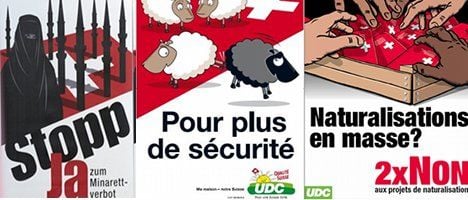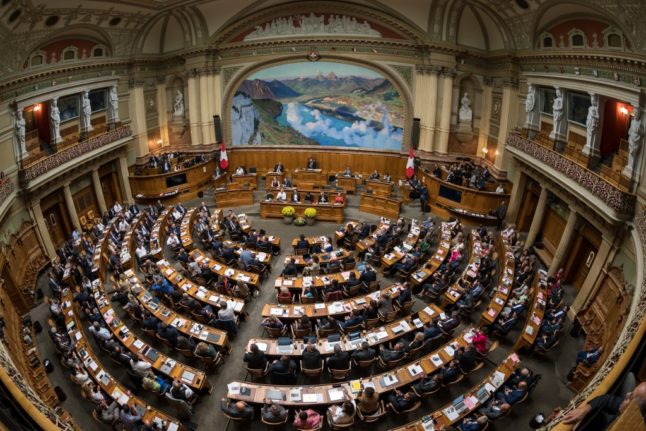The head of the Independent Federal Commission Against Racism, Georg Kreis, told AFP that Swiss elections were usually periods of racist and xenophobic agitation.
“There is a certain seductiveness during elections in using xenophobia or defamation as a political tool”, he said.
The commission is spearheading the ‘Fairplay in Elections’ campaign, which is backed by nearly 30 organizations, including human rights group Amnesty International.
During election campaigns, controversial themes should be brought to the table, he conceded, but debates should stick to the facts.
Kreis’s call has received press backing: “Those Swiss who are against smear campaigns, exclusion and the ’concept of the enemy’, have gained a voice. With an online signature, they can speak out“, the NZZ newspaper writes.
Switzerland’s biggest political party, the far-right Swiss People’s Party (SVP) has consistently sparked controversy with its campaigns.
The SVP, which already holds around a quarter of the seats in the federal assembly, is expected to make further gains during the October elections.
“Parties and politicians are not the focus of the campaign, rather the general public“, Kreis, explained to the media in Bern. “The iniative should show that in Switzerland there is a solid base of decent people. And there are more of them than one would assume from media reports.“
“The ‘Fairplay in election campaigns’ (Fairplay im Wahlkampf) project should alleviate their feeling of helplessness“, he said.
The campaign calls for parties to avoid racist and defamatory language against immigrants, asylum seekers, the socially disadvantaged and those who think differently.
“An open dialogue is a pre-condition for a democracy. That does not mean that everything should be allowed“, said Emine Sariaslan, president of the Forum for the Integration of Immigrants (FIMM), one of the organizations involved in the campaign. “People should not be made responsible for problems that have totally different cause because of their origin, religion or lifestyle.“
“The campaign is about the protection of different strands of society living alongside one another. Damage occurs when individual groups are shut out and defamed. “Those who really stand up for for Switzerland should sign the iniative,“ said Kreis.



 Please whitelist us to continue reading.
Please whitelist us to continue reading.
Member comments